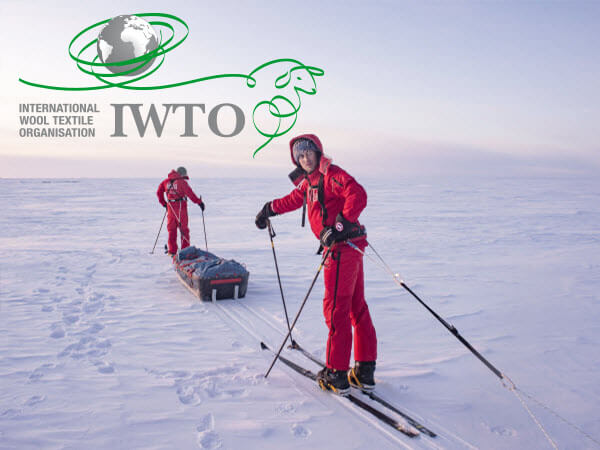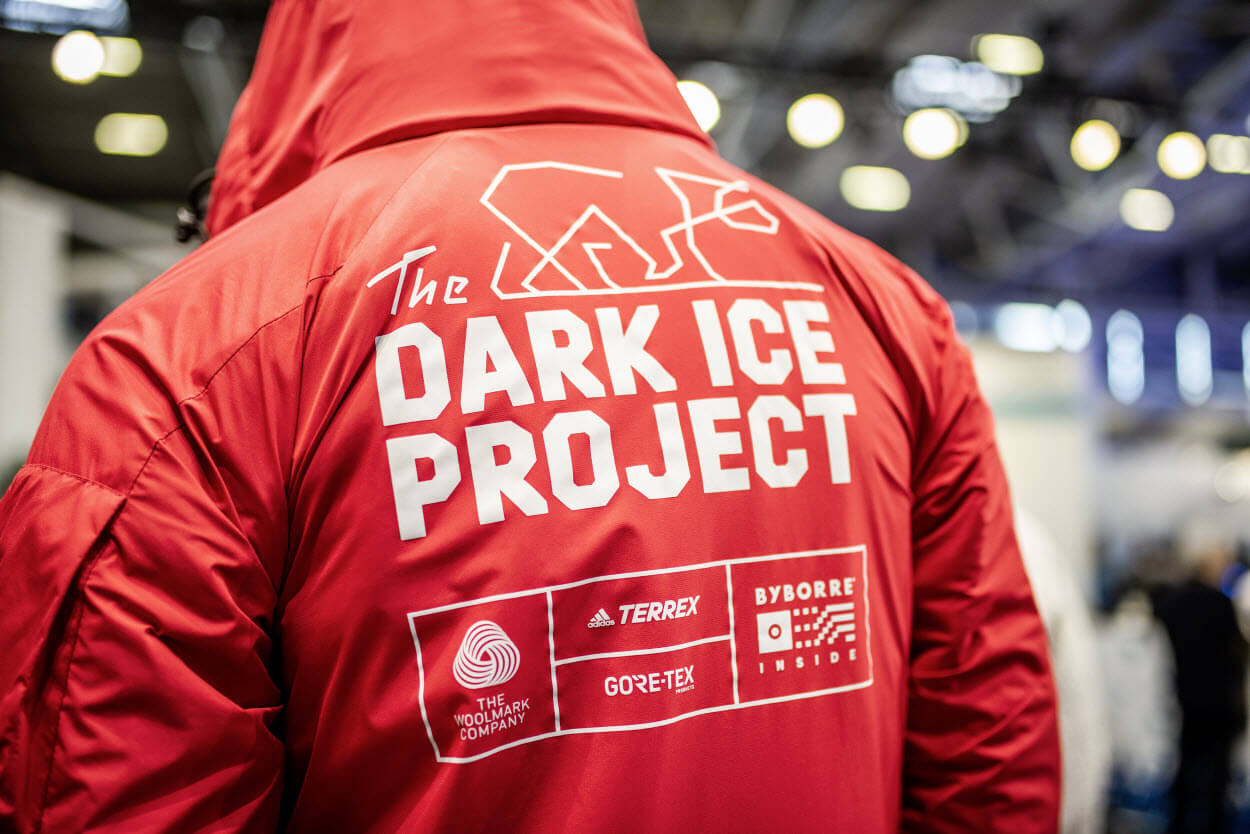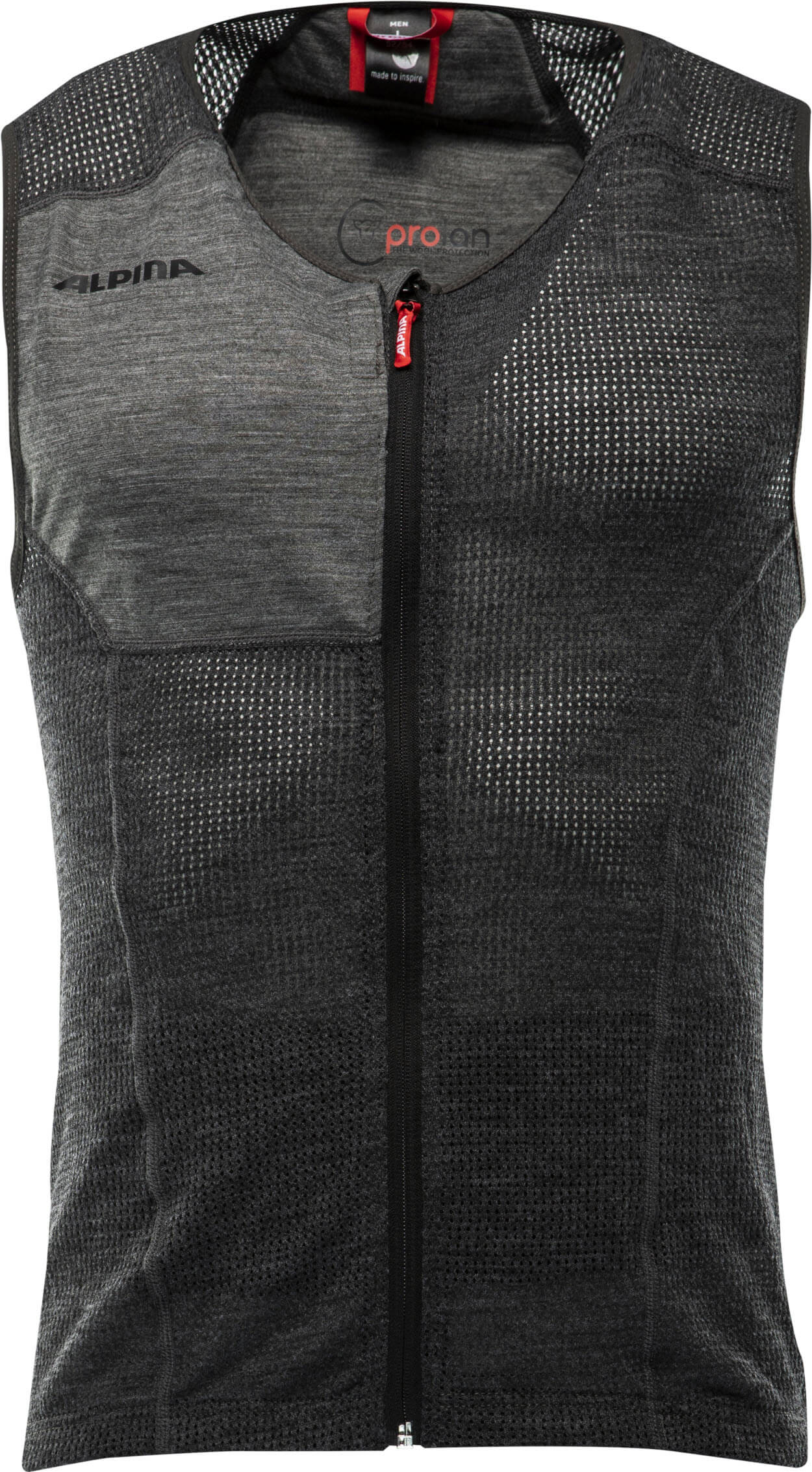
Wool’s performance and sustainability takes it to the extremes of the world
By Dalena White
Dalena White of the International Wool Textile Organisation explains how wool is earning a reputation as the sustainable material of choice for adventures in extreme environments.
In late January, wool literally took centre stage at one of the biggest events in the sports, outdoor and snow sports industry calendar.
As it always does, ISPO Munich showcased a bewildering array of new products and services, along with presentations, workshops, discussion panels and much more. This year, we succeeded in making wool a major talking point throughout the show and used various platforms to push powerful messages about material performance in extreme conditions on one hand, and sustainability on the other.
Central to this was the Sustainability Hub, where I participated in a panel discussion about wool that was organised by the European Outdoor Group, alongside colleagues from different parts of our supply chain. Our audience was fully engaged and asked some great questions, reinforcing my view that awareness and knowledge about the properties of wool are really improving.
Dark Ice Project
The Sustainability Hub was one of the most vibrant and dynamic features of ISPO and wool had a very strong presence there. It was the ideal location for the launch of the exciting Dark Ice Project, which The Woolmark Company is supporting as an official technical partner, teaming up with Adidas Terrex, Byborre and Gore-Tex to create the highly specialist garment kit that will be essential during an unaided six-month exploration of the Arctic Ocean.
Led by three of Britain’s most accomplished polar explorers – Alex Hibbert, George Bullard and James Wheeldon – the Dark Ice Project is an ambitious winter expedition that will undertake ground-breaking research into how microplastics behave in the water, snow and ice that constitute the Arctic Ocean.
The explorers will set off later this year by boat, followed by a ski phase of up to 10 weeks, usually trekking for eight-to-ten hours each day, in temperatures as low as -40°C, and hurricane-force winds. Specific requirements from the garments, such as wind and water resistance, durability, moisture management, maintaining thermal comfort, and even resistance to the development of body odour, will be key to the expedition’s success.
We already know that Merino wool is the original performance fibre and the Dark Ice Project will provide a demonstration of that in action. Crucially, and particularly given the trip’s research subject, wool is also 100% natural, renewable and biodegradable. A huge amount of preparation has been done by the project partners to develop the kit that Alex, George and James will use, and it is going to be very exciting to follow their progress.
Prolan Vest
ISPO also provided another timely reminder of how wool can be used to create a highly technical garment, when Alpina Sports’ Prolan Vest was crowned Product of the Year in the Snow Sports category of the 2020 ISPO Awards.
This is a very significant achievement for Alpina and a wonderful endorsement of the performance of wool, touching on its insulative, anti-odour, comfort and sustainability properties, which were all highlighted in the assessment of the judges.
Richard Palmer, a member of the jury panel, commented: “Fantastic to see natural materials in a category dominated by polymers. Wool is also incredibly comfortable to wear and would not build up odour over extended use – great!” I agree!
Biodegradable counterpoint
Both the Dark Ice Project and Alpina’s award success help to highlight the benefits of using wool in the extremes of the world, and they also both shine a light on important aspects of sustainability. The world is waking up to the pollution being caused by microfibres and wool offers a biodegradable counterpoint to that narrative.
Early results from new research in New Zealand have shown that in laboratory tests that simulate biodegradation in sea water, wool samples biodegraded by 27% in just 90 days, while synthetic competitor fibres showed little or no biodegradation in that period.
Based on this, wool fibres wouldn’t contribute to microfibre pollution in the oceans. The same research indicated that machine washable wool biodegrades readily, leaving no evidence of any potentially harmful residues.
Of course, that’s just the end-of-life good news for wool. The picture is also very positive while apparel is in use – thanks to wool’s unique structure and its water-repellent outer membrane, when a wool garment is being worn and cared for, the fibres are resilient and long-lasting, delivering the durability that is so important to end users. These are powerful messages, which our industry must communicate far and wide.
Therefore, the Dark Ice Project presents a brilliant opportunity. It will not only demonstrate how well wool performs ‘in extremis’, but also remind audiences about the fibre’s sustainability credentials. It is another wonderful way to promote wool’s unmatched circularity to the world.
- Dalena White is secretary general of the International Wool Textile Organisation
- Learn more about IWTO and its work at http://www.iwto.org
- Follow the progress of the Dark Ice Project at https://www.woolmark.com/news/collaborations/dark-ice-project
Have your say. Join the conversation and follow us on LinkedIn







